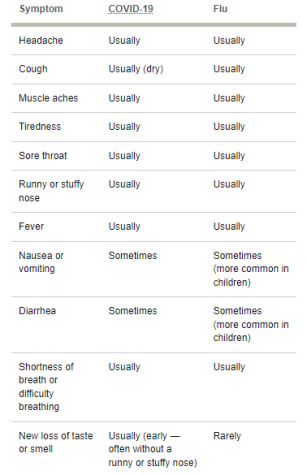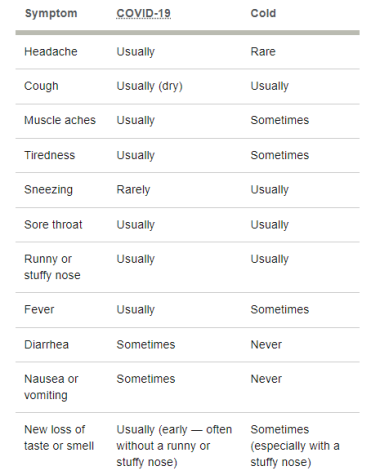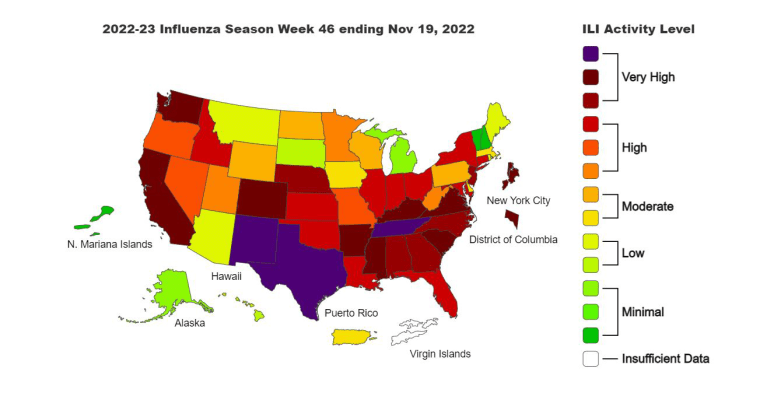Flu Season Is At Its Worst
December 2, 2022
The winter weather has brought an increase in sicknesses including respiratory syncytial virus (RSV), COVID-19, and flu. This year flu season started 6 weeks earlier than usual and people, especially children, are filling up hospitals. According to The Washington Post, this flu season has been “more severe than it has been in 13 years.”
The common cold, flu, and COVID have very similar symptoms, and health officials are calling the merging of the three respiratory diseases a “tripledemic,” but there are some specific symptoms that can differentiate them, said signs provided in the image below. Colds and flu are often contracted only a few days after being exposed to someone with it, last about a week, and are fairly harmless. You don’t begin feeling the symptoms of COVID-19, however, until up to 2 weeks after being around someone with it, lasts from 2 to 6 weeks, and can cause other complications making it more serious than the flu. If you still have trouble telling the difference, take a COVID or flu test.
It’s important to always maintain good health, but with so much passing around, you’re more vulnerable and susceptible. To stay well, avoid touching your face with dirty hands, and stay away from too much junk food. Eat healthy, balanced meals, stay hydrated, take vitamins, and get plenty of sleep while still staying active. Clean and disinfect your home after visitors and make sure you clean up at least every few weeks. If you find yourself catching something, colds, flu, and COVID-19 can be treated with antiviral drugs, prescription cold remedies, and pain relievers.
Keep others safe by staying home while you’re sick. Even with work or assignments to finish, in serious seasons like the present means it’s best to stay home and not only help yourself by resting but others as well. If you’re more cautious, wear a mask and hang out in ventilated, open areas rather than in crowded rooms. Cover your nose and mouth when sneezing and coughing, wash your hands afterwards, and make sure you’re up to date on your vaccines.
As a precaution, stock up on essentials like over the counter medication, decongestants, pain relievers, cough drops, and a thermometer. Don’t forget to include tissues, disinfectant spray, hand sanitizer, warm drinks, and soups, specifically chicken noodle.
Follow these safety measures and stay well through this winter season.



